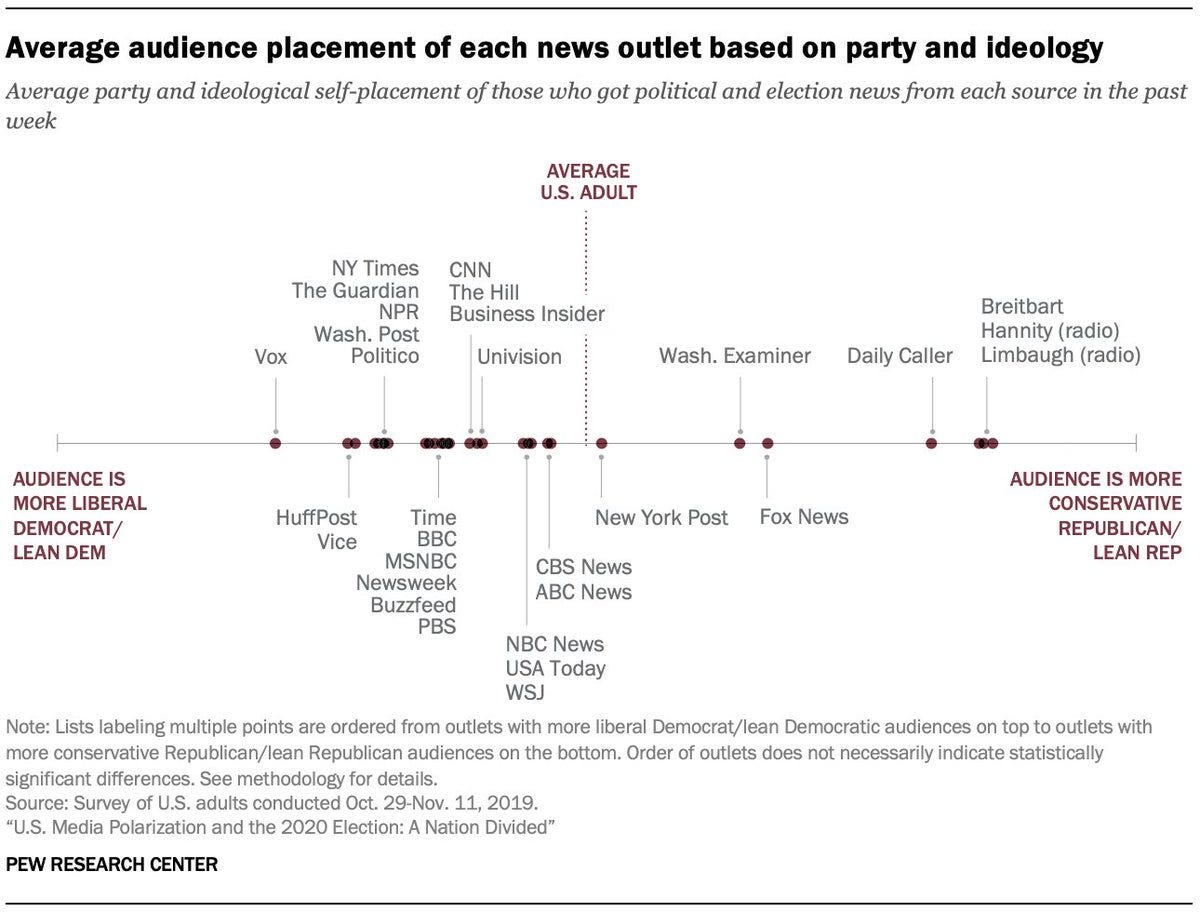Journalists are Increasingly Beholden to Their Polarized Audiences - BCB #41
Live by polarized narratives, die by polarized narratives
Doing journalism in a polarized society runs the risk of pissing off your audience when you have to tell them something they don’t want to hear. This dilemma will only get worse as the news business shifts from advertising revenue to reader subscriptions.
Last week, we learned from a leaked report that the Department of Energy believes that “the most likely cause” of the COVID-19 outbreak was a lab leak in Wuhan – the latest signal that this narrative is becoming mainstream. For a long time, this was considered taboo on the Blue side – the lab leak theory was immediately dismissed as racist, and Facebook removed posts suggesting this as part of their COVID-19 misinformation policy.
So when Blue comedian Jon Stewart did a comedy bit about the lab leak theory as a possible source for the virus in early in 2021, he faced an immediate backlash. After the DOE leak last week, Stewart discussed the reaction from his fans:
The larger problem with all of this is the inability to discuss things that are in the realm of possibility without falling into absolutes, and litmus testing each other for our political allegiances.
…
The two things that came out of this were “I’m racist to Asian people” and “how dare I align myself with the alt right.”
At the time, even his host Stephen Colbert joked about Stewart’s new collaboration with Red senator Ron Johnson.
The same phenomenon seems to be occurring now on the Red side: documents from the Dominion lawsuit against Fox news allege that Fox knowingly propagated false claims that Dominion voting machines miscounted the votes during the 2020 election. From Salon coverage:
"Sidney Powell is lying," host Tucker Carlson told his producer Alex Pfeiffer after an interview with the Trump-allied attorney, according to the filing, calling her a "fucking bitch."
Fox Corporation Chairman Rupert Murdoch referred to claims peddled by Powell, who baselessly alleged that Dominion voting machines "flipped" votes from Trump to President Joe Biden, were "terrible stuff damaging everybody."
"Really crazy stuff," he wrote in an email to Fox News CEO Suzanne Scott of claims pushed by Powell and former Trump attorney Rudy Giuliani, adding that it was "very hard to credibly claim foul everywhere."
Yet Fox found it hard to tell the truth because they were afraid of what their audience might think. The NYT reports that executives were alarmed as Fox viewers began to turn against the network after they projected Biden’s victory, and started switching to more extreme alternatives such as Newsmax.
We might expect audiences to be able to put even more pressure on journalists as newsrooms move from advertising to subscription models. This shift has been happening for a long time, and in 2020 the newspaper industry as a whole made more from readers than advertisers for the first time. Along with this shift, audiences have become more polarized – that is, news readers have sorted themselves between different publications depending on their ideology.

Media analyst Andrew Mir sees a larger trend where journalists depend more on audience approval. As he notes in a related essay,
What advertisers and corporations wanted from the agenda-setting in the media was known. It remains to be explored – and experienced – what the donating audience might want from the news media.
Tips on increasing transparency in journalism to increase trust
The Trusting News Project offers practical tips on how journalists can deliver their message in a way that builds trust with readers. For example: put yourself in the reader's shoes and start with anticipated questions that the audience would have, and bring them early on in the article. If the article is unusual in some way, put an editor’s note at the top to explain why you’re running it how it was reported. And standard journalistic practices will need to be explained, such as the use of anonymous sources:



